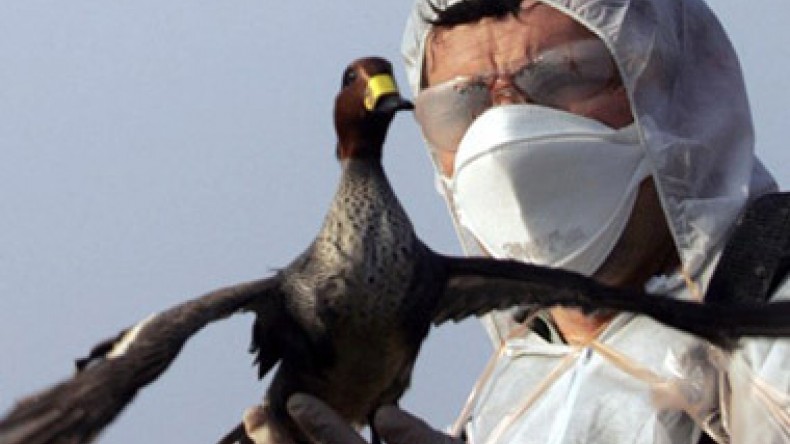
Bird flu worries spread in Europe
Europeans are worried about a possible continent-wide bird flu epidemic after a wild duck tested positive for the H5N8 virus in northeast Germany, CNN reported, citing authorities.
The virus was first discovered earlier this month in domesticated birds at a turkey farm in Germany with subsequent outbreaks on poultry farms in the Netherlands and the United Kingdom.
Authorities say that the first wild bird case strengthens the suspicion that the source of the European outbreak lies in the wild bird population.
"We must now talk about a Europe-wide epidemic," said Till Backhaus, the agriculture minister of the German state of Mecklenburg-Vorpommern, where the wild bird was found.
He ordered all poultry farmers in his state to keep their animals inside enclosures and away from wild birds.
This month over 200,000 ducks, turkeys and chickens were killed in Europe to control the outbreak, according to the World Organization for Animal Health. Once the virus is discovered in select birds, the entire flock must be destroyed, according to health officials.
There have been no human cases of H5N8 reported, according to the World Health Organization, but the agency said other avian flu strains have infected humans in the past. The H5N8 strain in Europe "appears to be highly pathogenic," meaning that it is highly likely to cause disease and death in poultry.
It's not known how the virus reached Europe, but the WHO said surveillance zones have been put in place around affected farms to prevent the spread of the disease.
Newsfeed
Videos






























